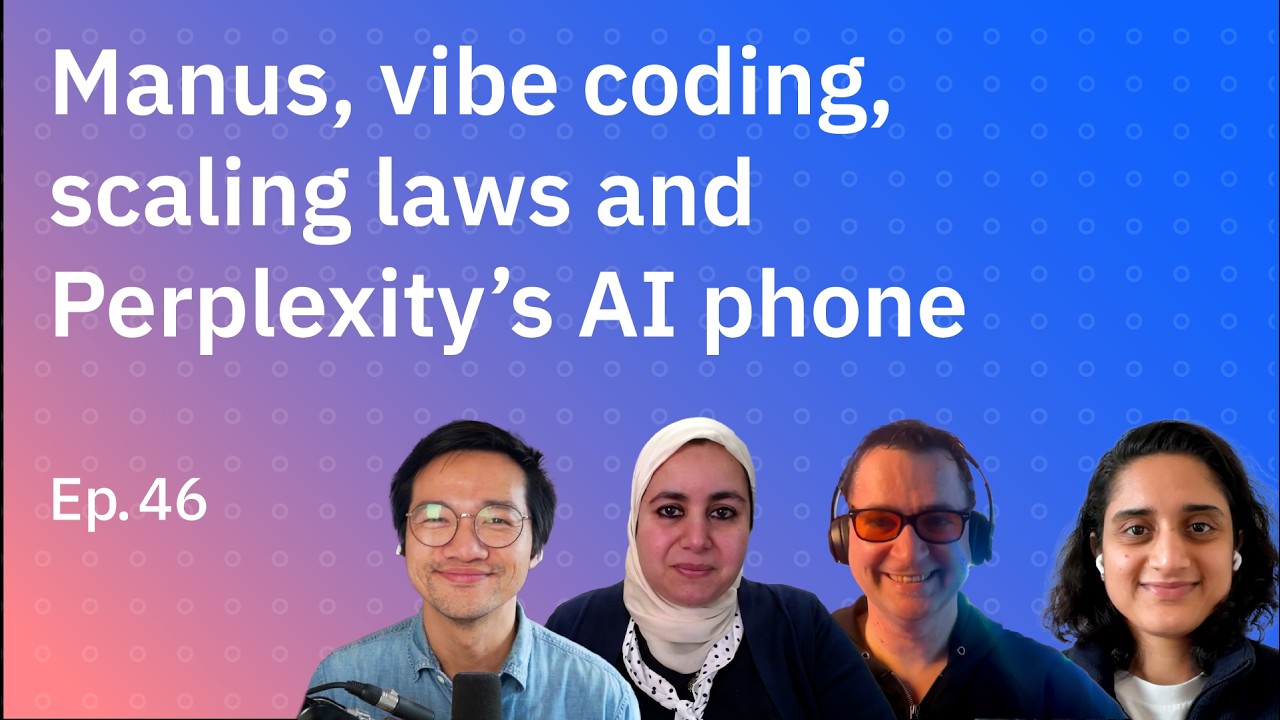In the latest episode of “Mixture of Experts,” the panel discusses Manus AI’s multipurpose capabilities and the implications of “vibe coding,” emphasizing the balance between leveraging AI tools and maintaining foundational coding knowledge. They also explore scaling laws in AI, the recent launch of an AI phone by Perplexity, and the competitive landscape in mobile technology, highlighting the potential for innovative approaches to reshape user experiences.
In the latest episode of “Mixture of Experts,” host Tim Hwang and guests Vyoma Gajjar, Kaoutar El Maghraoui, and Chris Hay discuss the implications of Manus AI, a Chinese company that has recently made waves in the AI community with its multipurpose agent capable of performing various tasks such as scheduling trips and analyzing stocks. The panel debates whether Manus AI represents a significant moment in AI development akin to the DeepSeek moment, with Vyoma expressing optimism about its potential, while Kaoutar remains skeptical, emphasizing the need for rigorous evaluation of its capabilities. Chris offers a nuanced perspective, suggesting that while Manus may leverage existing models like Claude, it has integrated various tools to create a compelling user experience.
The conversation shifts to the concept of “vibe coding,” introduced by Andrej Karpathy, which refers to a more intuitive and exploratory approach to coding facilitated by AI tools. Vyoma and Kaoutar express concerns about the potential decline in coding rigor and foundational knowledge among developers who rely too heavily on AI assistance. They argue that while vibe coding can be useful for rapid prototyping and simple tasks, a solid understanding of coding principles remains essential for more complex projects. Chris, however, sees vibe coding as a way to democratize coding, allowing non-experts to create applications and potentially sparking interest in deeper programming knowledge.
The discussion then transitions to scaling laws in AI, particularly in light of DeepSeek’s approach, which challenges traditional beliefs that larger models and more data always lead to better performance. Kaoutar highlights how DeepSeek’s focus on efficiency and smarter training techniques can yield competitive results with smaller models, suggesting a shift in the AI community towards optimizing performance rather than merely increasing model size. The panel agrees that the future of AI development will likely involve a combination of larger models and innovative techniques that enhance efficiency and effectiveness.
The episode also touches on the recent announcement of an AI phone by Perplexity and Deutsche Telekom, which aims to integrate AI features into a mobile device. The panel discusses the strategic implications of this move, with Chris suggesting that controlling the browser bar on mobile devices could allow Perplexity to direct search queries to its AI-powered platform. Vyoma and Kaoutar emphasize the importance of context-aware AI and the potential for voice-centric interactions to redefine user experiences on mobile devices.
Finally, the panel reflects on the competitive landscape of AI and mobile technology, particularly in relation to established players like Apple. They speculate on how Apple’s cautious approach to integrating AI features might create opportunities for companies like Perplexity to capture market share. The discussion concludes with a consensus that the evolution of AI in mobile technology will depend on advancements in edge AI capabilities and the ability to deliver a seamless, integrated user experience.
